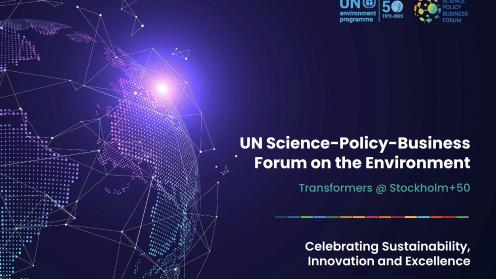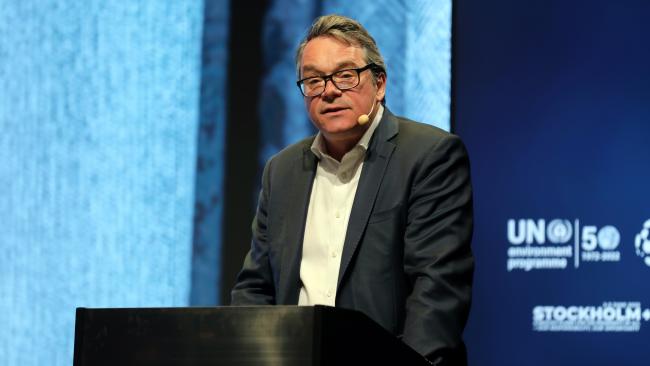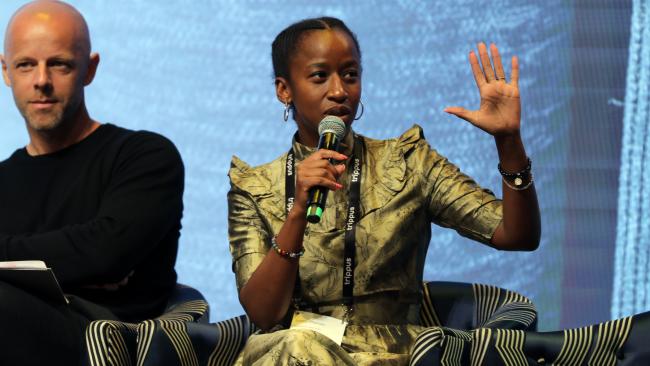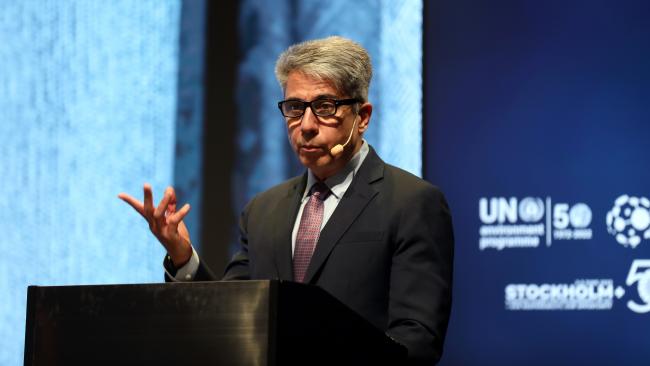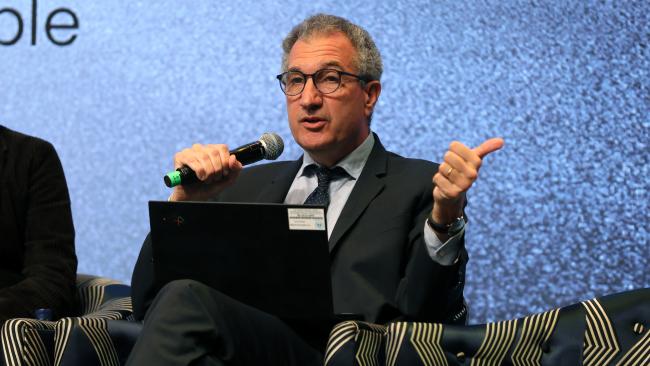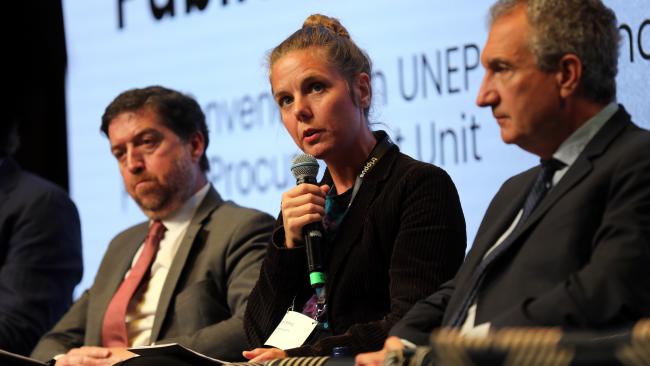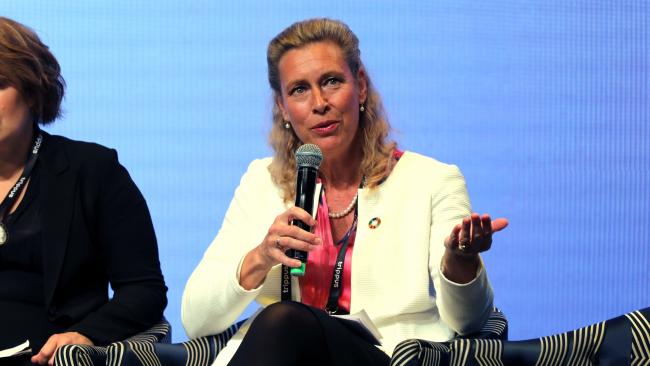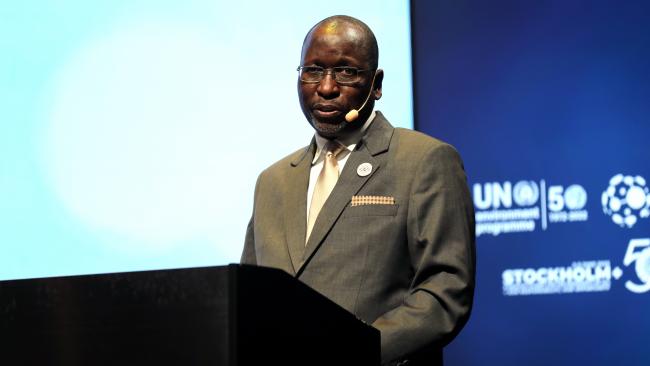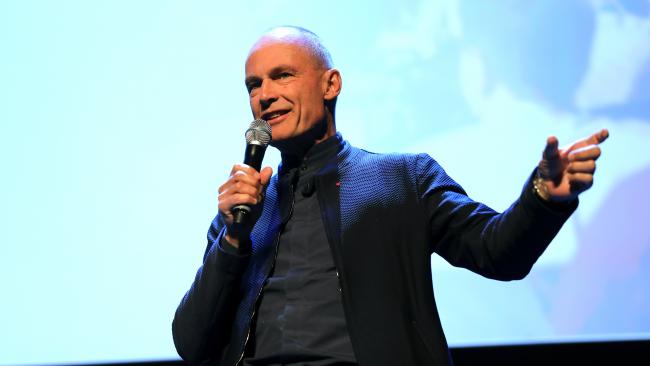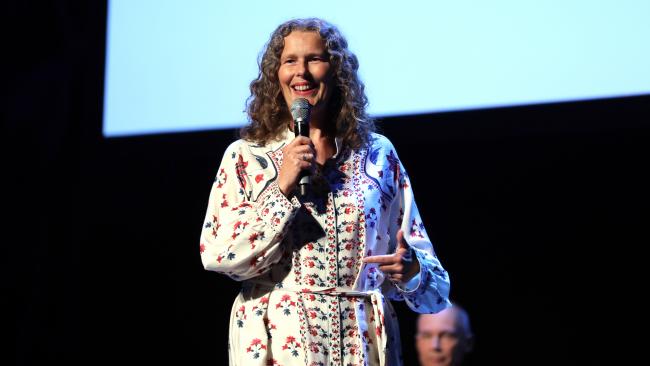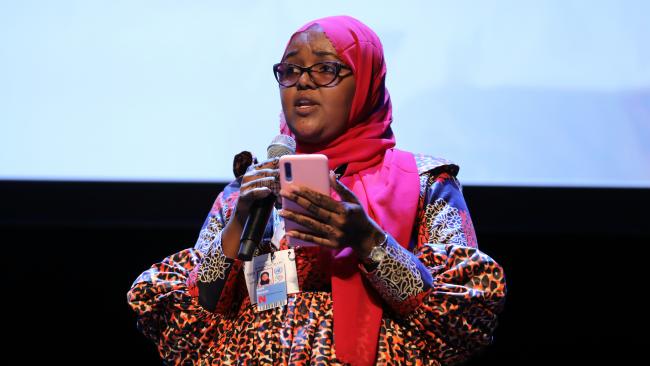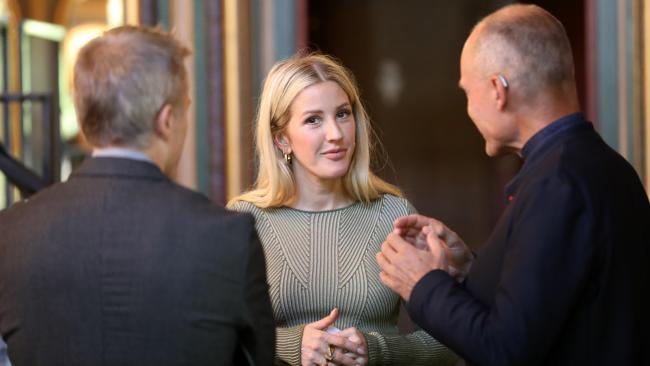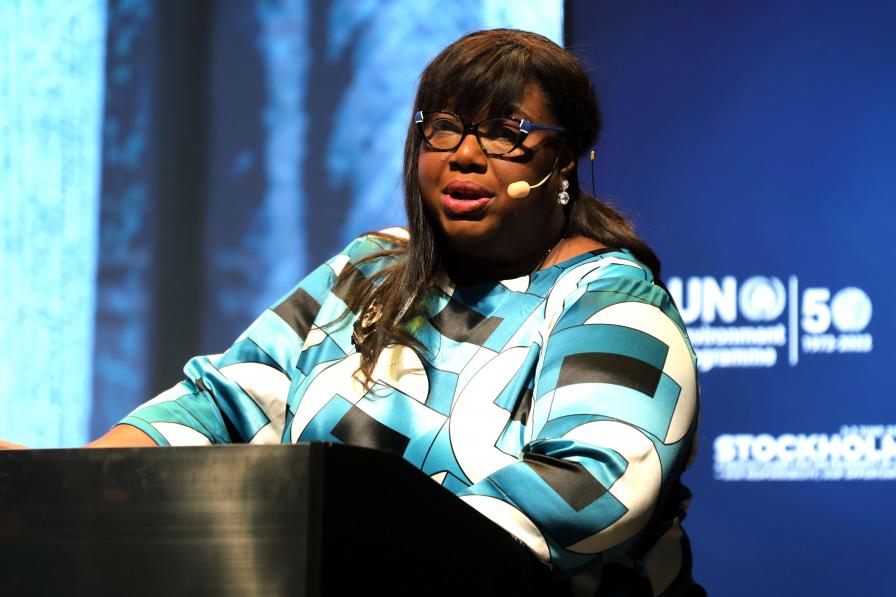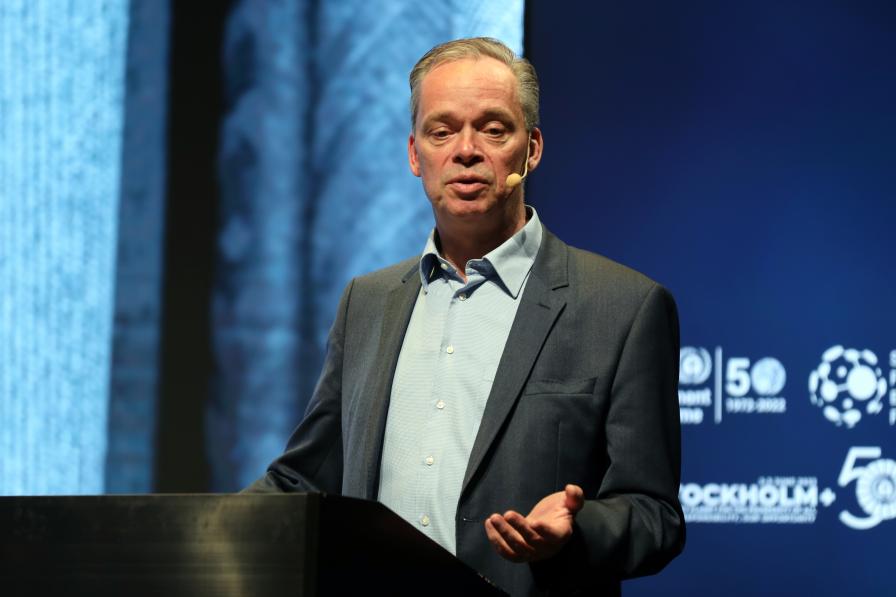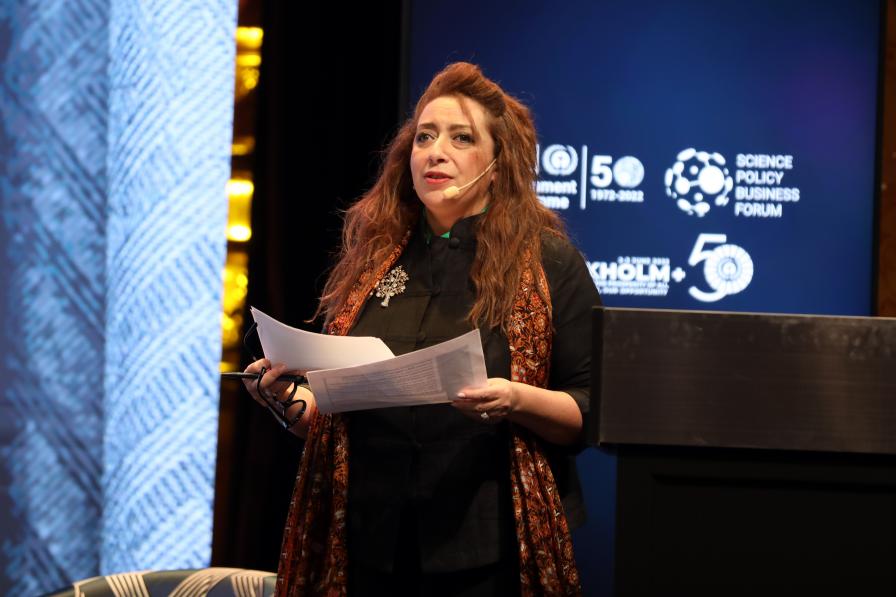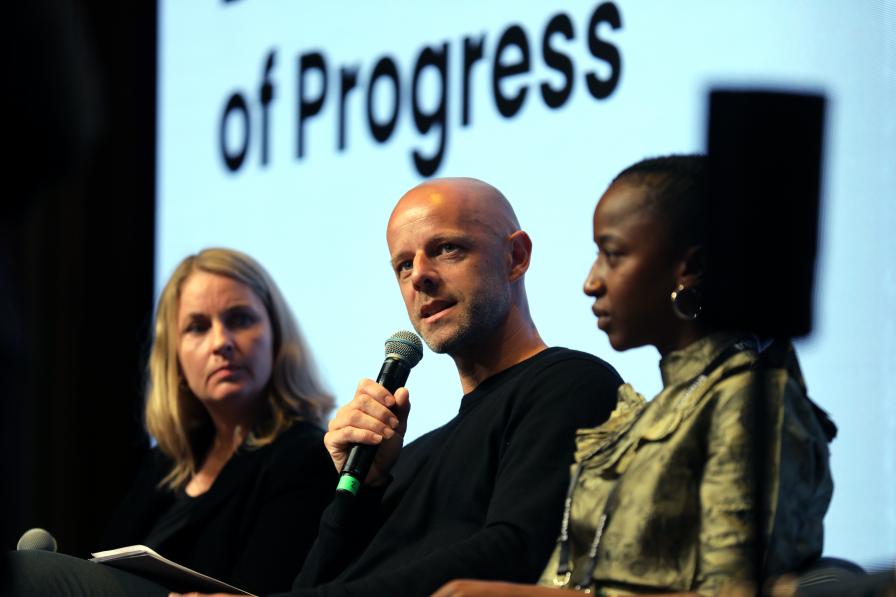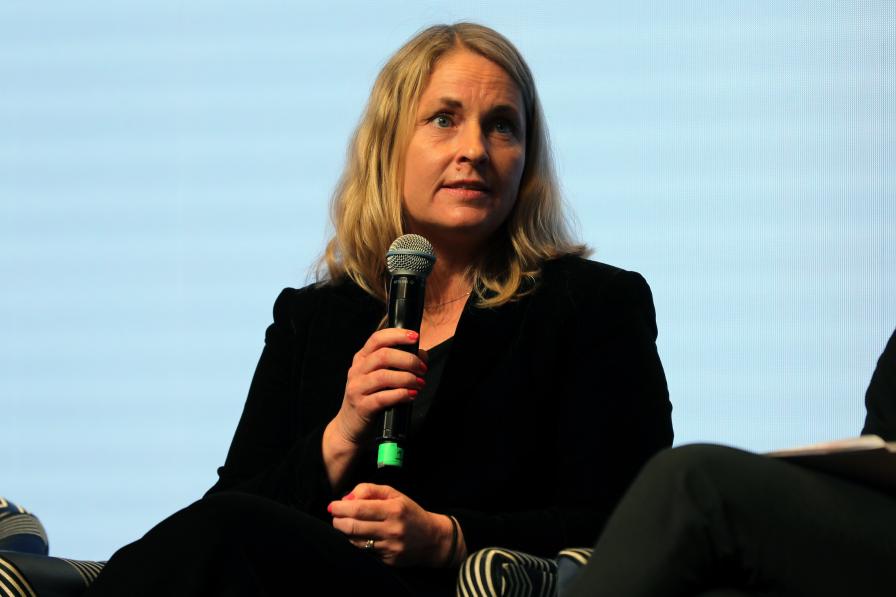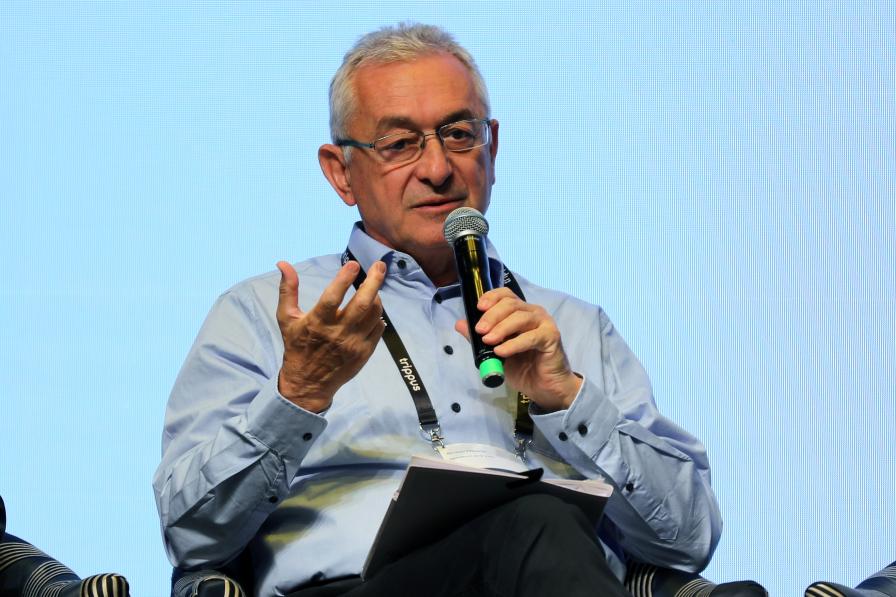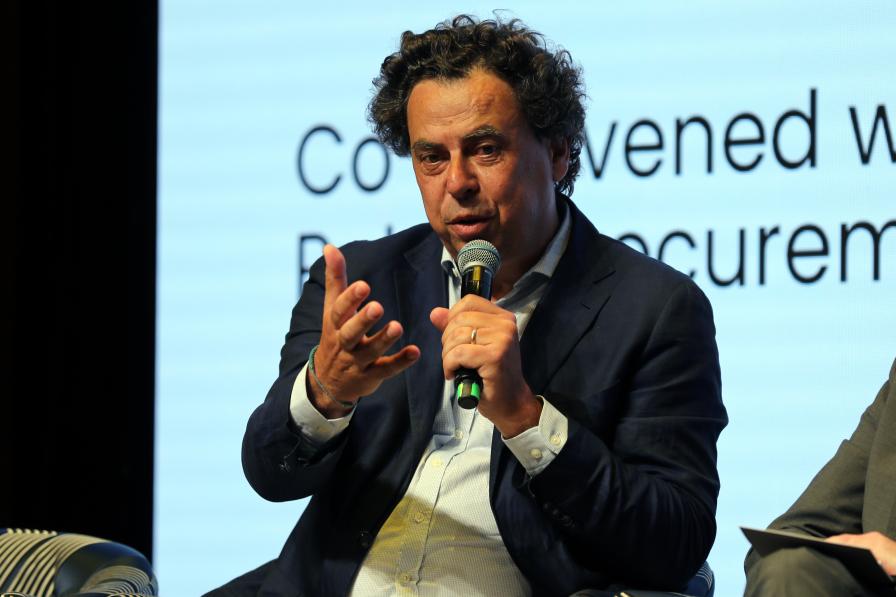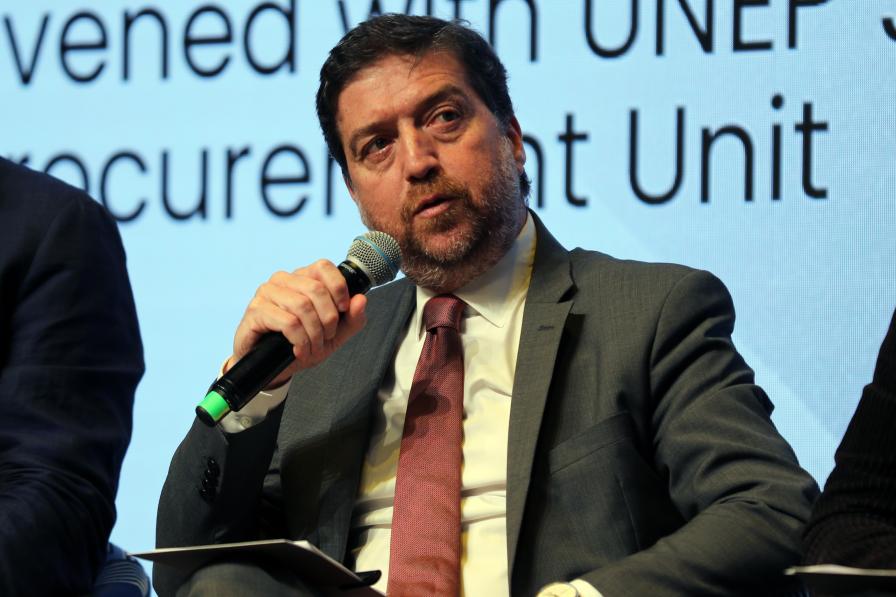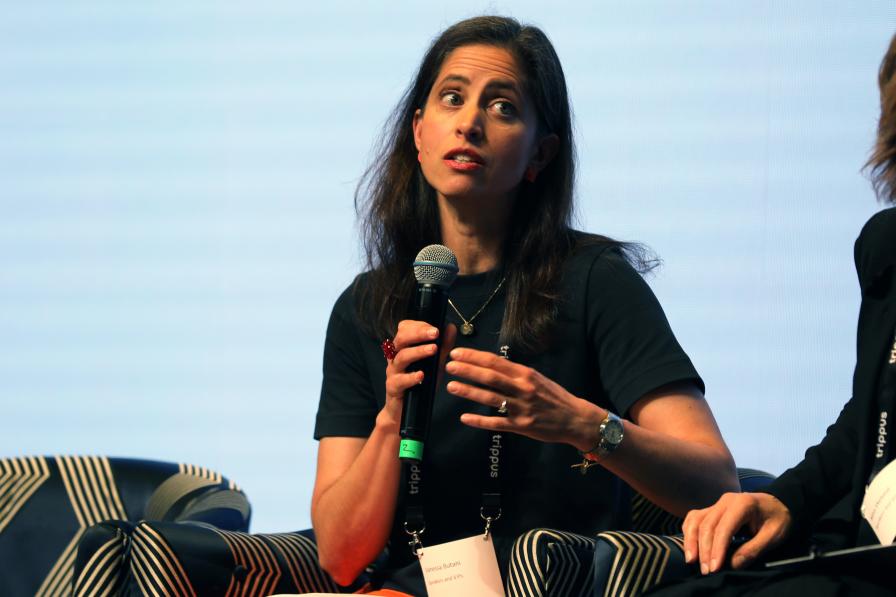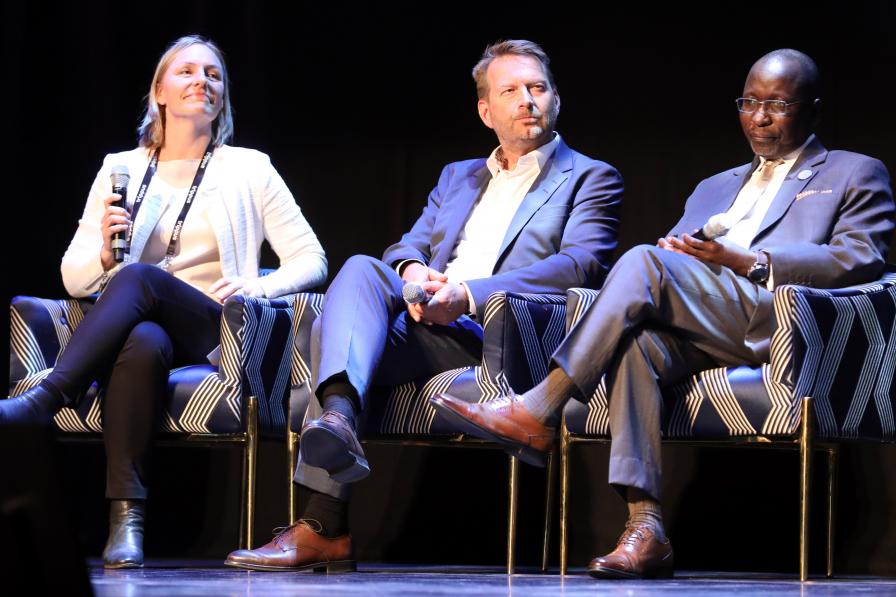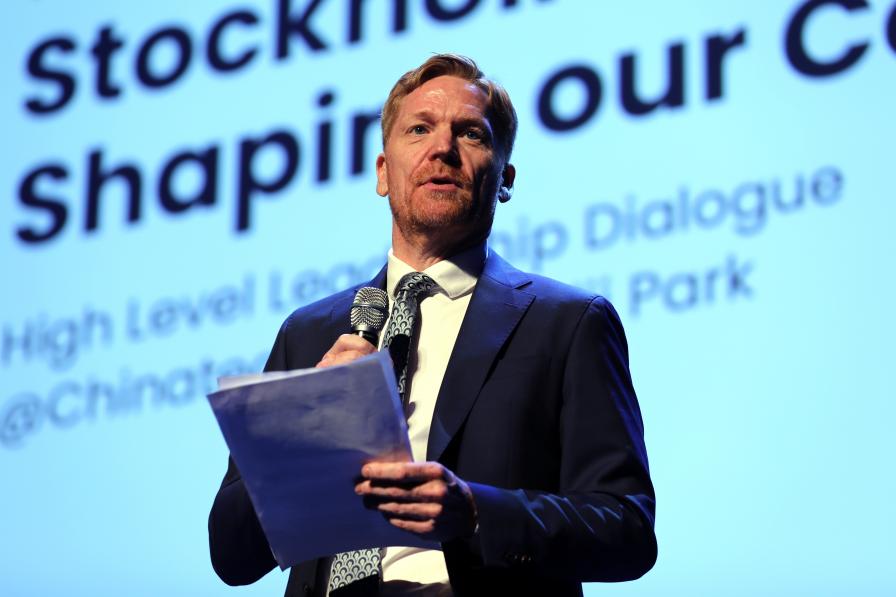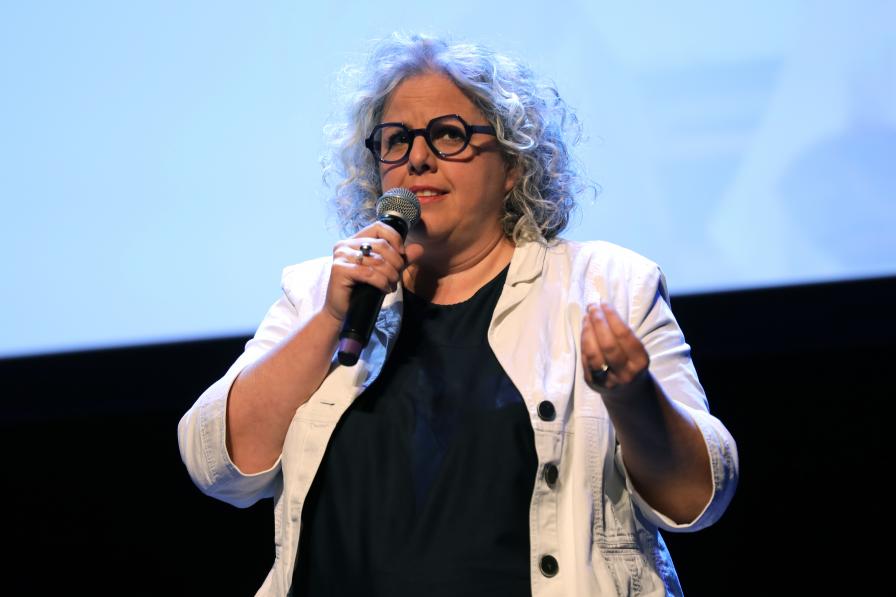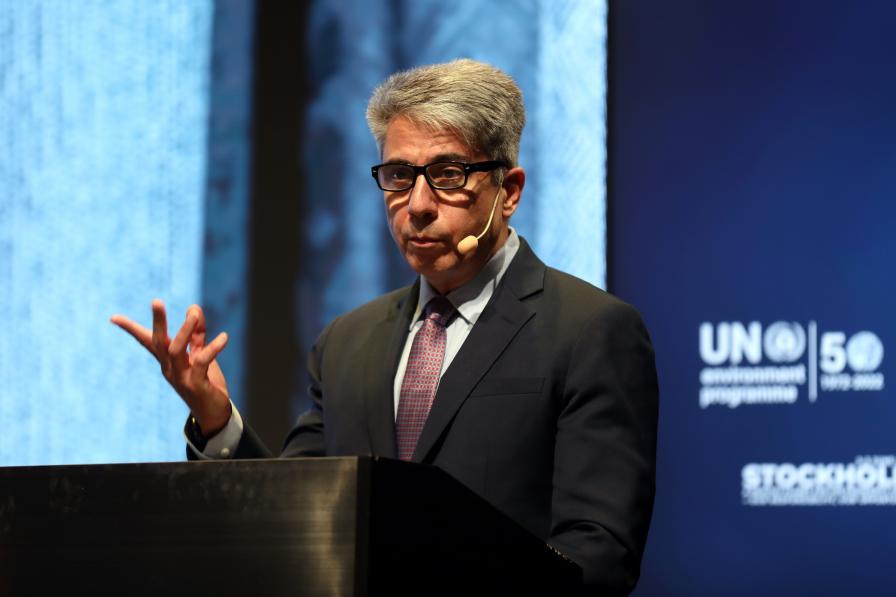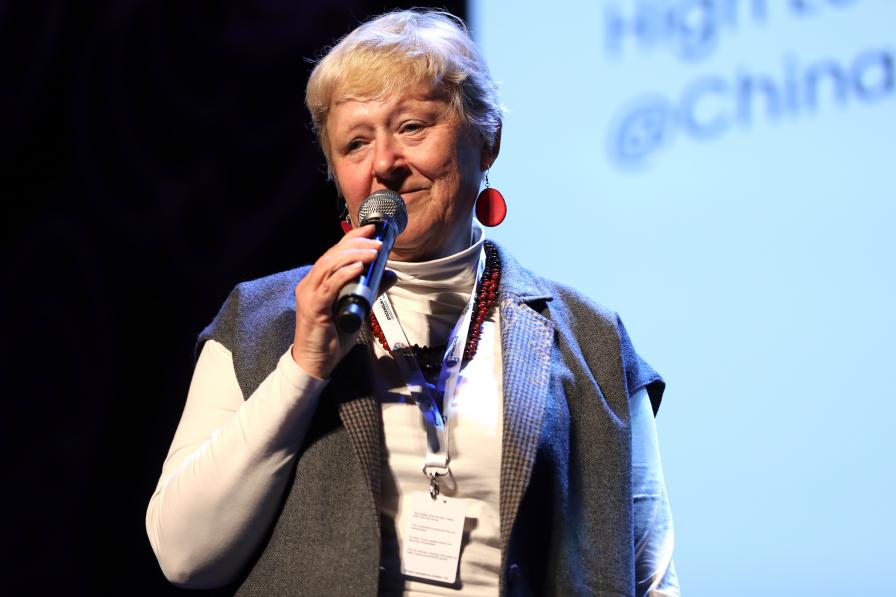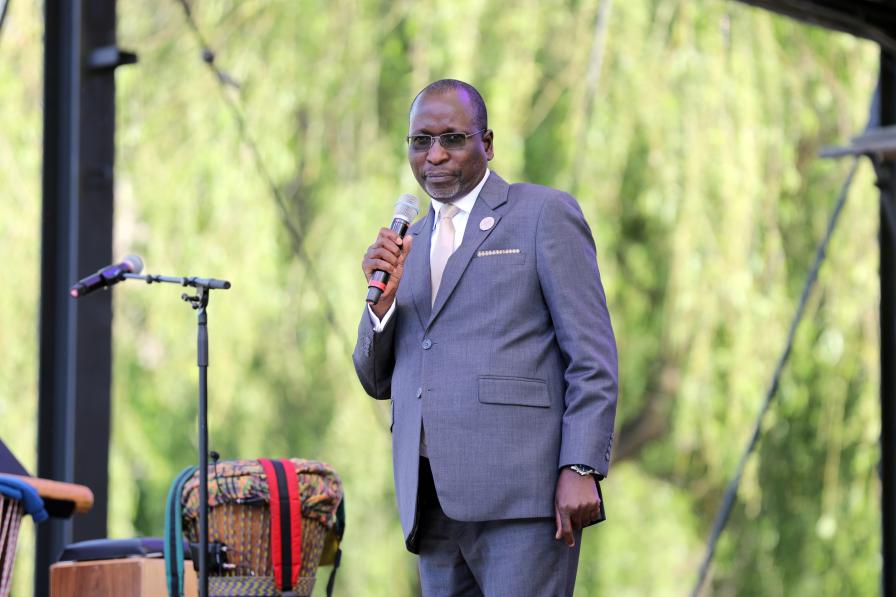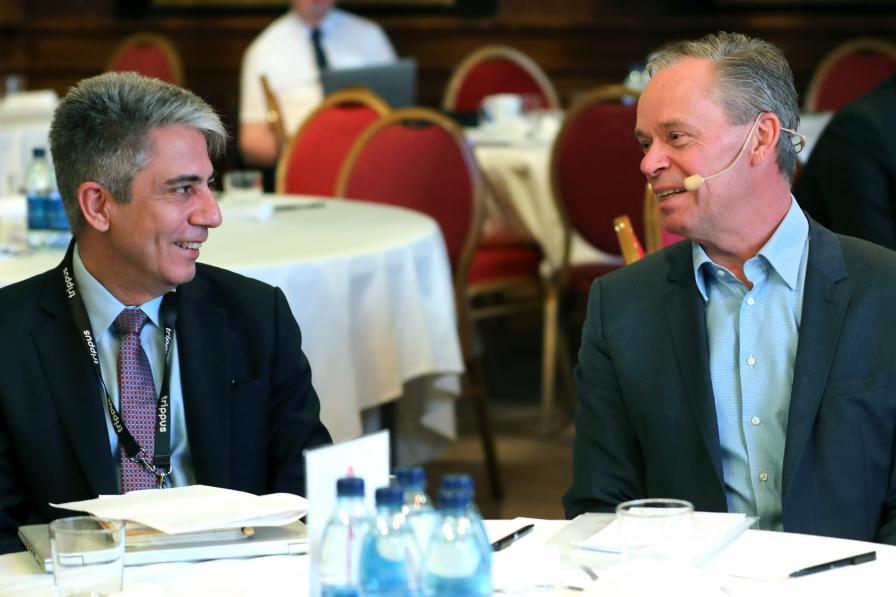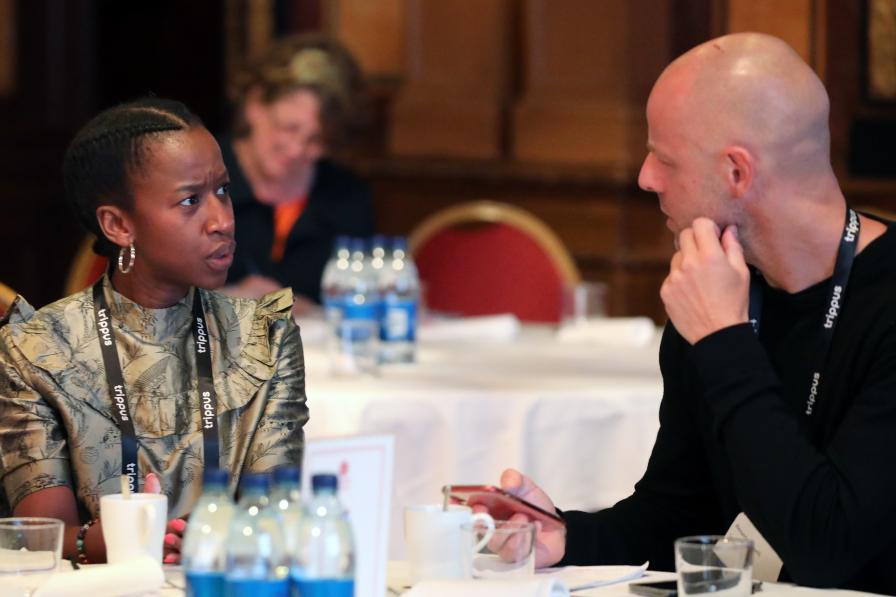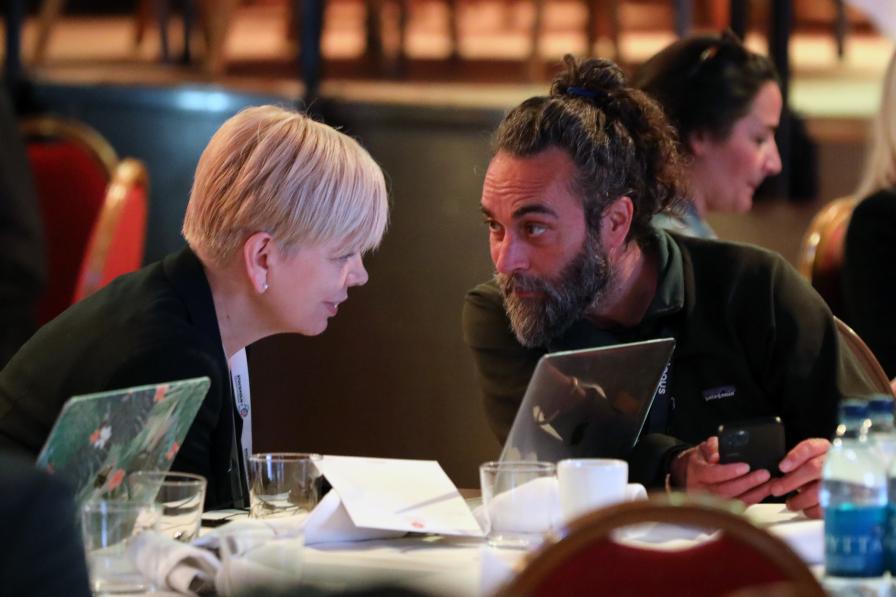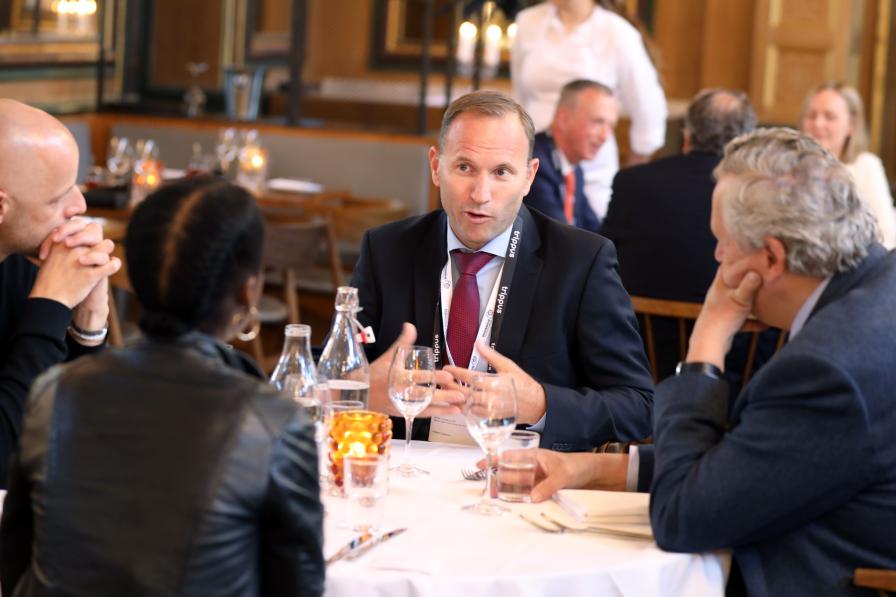The second and final day of the fourth Global Session of the UN Science-Policy-Business Forum (UN-SPBF 2022) was no less packed than day one. It tackled equally important issues, such as sustainable fashion and sustainable public procurement. Both of these affect fundamental parts of our daily lives and are important aspects of future sustainability.
The session then adopted a forward-looking approach, discussing expectations for the 27th meeting of the Conference of the Parties to the UN Framework Convention on Climate Change (UNFCCC COP27). UN-SPBF 2022 closed with a discussion on participants’ vision for the next 50 years, when Stockholm+100 will be held.
Opening of Day 2
Axel Threlfall, Thomson Reuters, underscored key messages from the first day, including on the urgent need to: deploy and finance the best technologies available to enable transition; make the multilateral system more effective; enhance collaboration across sectors; and create demand for sustainable products. Sonja Leighton-Kone, Acting Deputy Executive Director, UN Environment Programme (UNEP), stressed the world has the knowledge and policy tools, and needs to move into action.
Nature-Positive Sector Transitions
Harry Verhaar, Signify, shared Signify’s experience regarding transition of the lighting sector towards more energy-efficient solutions, starting from the EU Ecodesign Directive and the phasing out of incandescent bulbs.
Sindiso Khumalo, designer, South Africa, drew attention to her company’s environmental and social standards and value-based efforts to ensure sustainable materials and fair labor.
Alexandre Capelli, Moët Hennessy Louis Vuitton Group (LVMH), presented on efforts towards a more circular business model.
Cecilia Brännsten, H&M Group, suggested the company’s size allows for their actions to have an impact on the whole industry.
Kenneth Pucker, Tufts University, underscored that commitments need to be accompanied by consequences if missed, noting the need for a regulatory shift to move the entire industry towards sustainability.
Steven Kukoda, Executive Director, International Copper Association, said his industry is closely connected with the 2030 Agenda for Sustainable Development and critical to achieving the energy transition and Paris Agreement goals.
Sonja Leighton-Kone noted an International Energy Agency scenario showing that the clean energy transition will substantially increase demand for critical minerals such as copper, lithium, nickel, cobalt, manganese, and rare earths.
Bruno Oberle, Director General, International Union for Conservation of Nature (IUCN), cautioned greater mining of critical minerals must not increase greenhouse gas emissions or biodiversity loss, so all actors need to work together to ensure responsible mining.
John Howchin, Global Ambassador for the Global Tailings Management Institute, agreed that the Global Industry Standard on Tailings Management was a good example of how a voluntary initiative can take the lead that regulators will follow.
Accountability and Public Finance: Fast Tracking Sustainable Public Procurement
Caroline Nguyen, Council on Environmental Quality, US, announced the US Government will soon propose a regulation to require federal contractors to publicly disclose their climate emissions and climate risks, as well as plans to reduce both.
Sébastien Postic, I4CE, said many countries have rules on sustainable procurement, but lack strategies that cover matters such as what portion of procurement should be green.
Farid Yaker, UNEP, decried the lack of reliable data on procurement. He said UNEP is looking into how big data, AI, and other tools can improve measurement.
Paulo Magina, Organisation for Economic Co-operation and Development (OECD), noted a study showed that sustainable public procurement can help achieve 82% of the Sustainable Development Goals (SDGs).
Annie Stalberg, Swedish National Agency for Public Procurement, said to achieve success in sustainable public procurement, having an action plan that points out the direction and goal to reach politicians and organizations is essential.
Pierre François Thaler, Co-Founder and Co-CEO, Eco Vadis, said sustainable procurement is about buying sustainable products from responsible suppliers.
The Next Climate COP: From Pledges to Action
Irene Feige, BMW Group, called for more Corporate Determined Contributions (CDCs) from multinational corporations.
Li Zhang, Director, Green Inclusive Carbon Neutrality Promotion Center, said consumer choice can drive big changes and have a positive impact on the environment.
Nina Ekelund, Executive Director, The Haga Initiative, urged “dancing with policy” to be able to set the right carbon price.
Annika Ramsköld, Vattenfall, urged for nationally determined contributions (NDCs) to be backed up by action and urged more discussion on the regulatory framework to enable the transition.
Vanessa Butani, Electrolux, called for constant conversations on making the business case for sustainability.
Collen Vixen Kelapile, President, UN Economic and Social Council (ECOSOC), said meaningful impact can only be realized if all the SDGs and associated targets are addressed equally.
Stockholm +100: Shaping our Common Future
Maria Ivanova presented a letter signed by a group of scientists, published in Nature and on science4stockholm50.world, highlighting the need for: redefining what is good and enough for societies and individuals to thrive; recognizing both privilege and responsibility; and empowerment and collective action.
Collen Vixen Kelapile stressed: data tools to measure progress on the SDGs; strengthened multilateralism to overcome the development losses related to the COVID-19 pandemic and geopolitical tensions; and honoring financial commitments.
Niklas Gustafsson, Volvo Group, underscored the need for a price on carbon accompanied by smart policies.
Hilde Røed, Equinor, focused on her company’s development of offshore wind technologies as part of their commitments for low-carbon solutions.
Bertrand Piccard, Solar Impulse Foundation, suggested technological solutions to environmental problems are economically profitable and can, therefore, be successfully applied.
Pernilla Halldin, H&M, underscored the impact of regulation and of collaborations.
Jakob Kiefer, ABB Group, highlighted collaboration, as well as saving wasted energy, informing consumer behavior, addressing sustainable supply chains, and supporting a multilateral trade system.
Rana Adib, Ren21, called for spaces where stakeholders can develop joint understandings and narratives, highlighting the enabling role of policy and education.
John Streur, President & CEO, Calvert Research and Management, called for more robust corporate disclosure about environmental impacts and market pricing of all their externalities, not just carbon emissions.
Steven Kukoda urged companies to move beyond what they are forced to do by regulations and standards and focus instead on what needs to get done to advance the SDGs.
Lee George Lam, Chairman, Hong Kong Cyberport, called for the Asia-Pacific region to adopt a green deal and seek green transformation, with business leading the mobilization and working cooperatively with governments and communities.
Li Zhenguo, Founder and President, LONGi, urged developing countries to formulate and improve policies and roadmaps for a clean energy transition as soon as possible.
Kaja Tael, Ambassador at Large for Climate and Energy Policy, Estonia, predicted we will all live in a renewable energy world in 20 years.
Civil society and youth representatives called for more engagement with major groups, underscoring the many contributions they can make during multilateral negotiations and in other fora.
Concert for Peace and the Planet
In the evening, participants attended the unveiling of the immersive digital artwork ‘50/50,’ and attended the Concert for Peace and the Planet, featuring singer Ellie Goulding and Ricky Kej, multiple Grammy Award-winning Indian composer.
To receive free coverage of global environmental events delivered to your inbox, subscribe to the ENB Update newsletter.
Selected Images
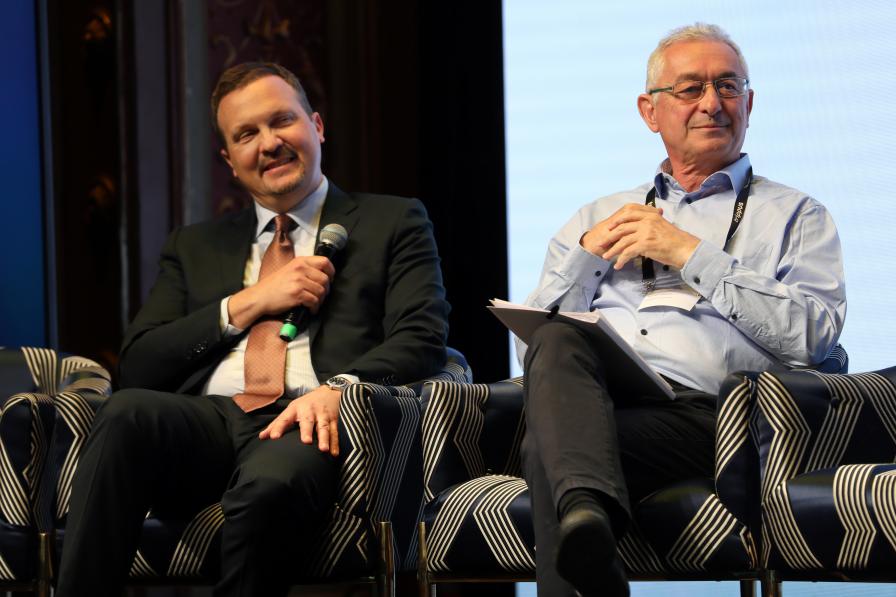
John Howchin, Global Ambassador for the Global Tailings Management Institute, and Bruno Oberle, Director General, IUCN
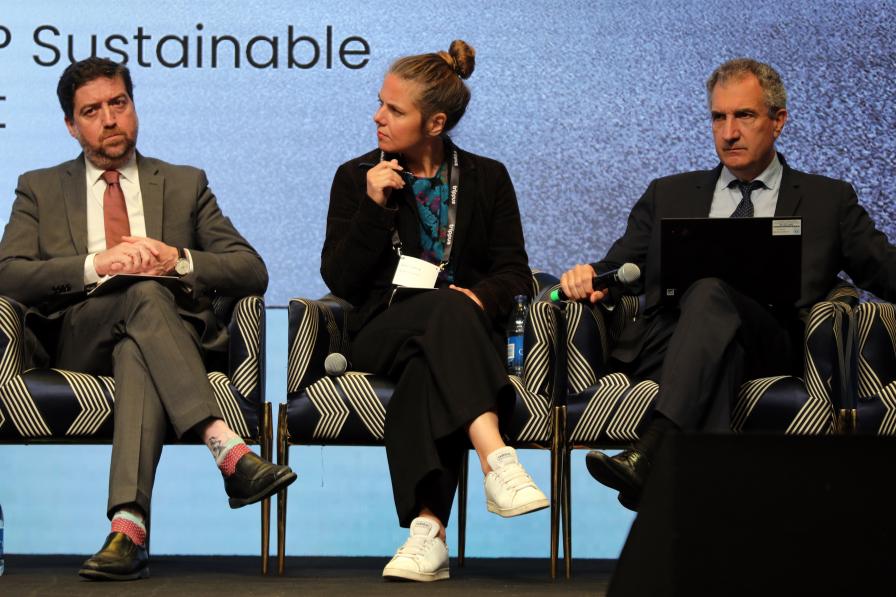
From L-R: Paulo Magina, Head of Public Procurement Unit, OECD; Annie Stalberg, Head of Sustainability Procurement, Swedish National Agency for Public Procurement; and Farid Yaker, Programme Manager, Sustainable Public Procurement, UNEP
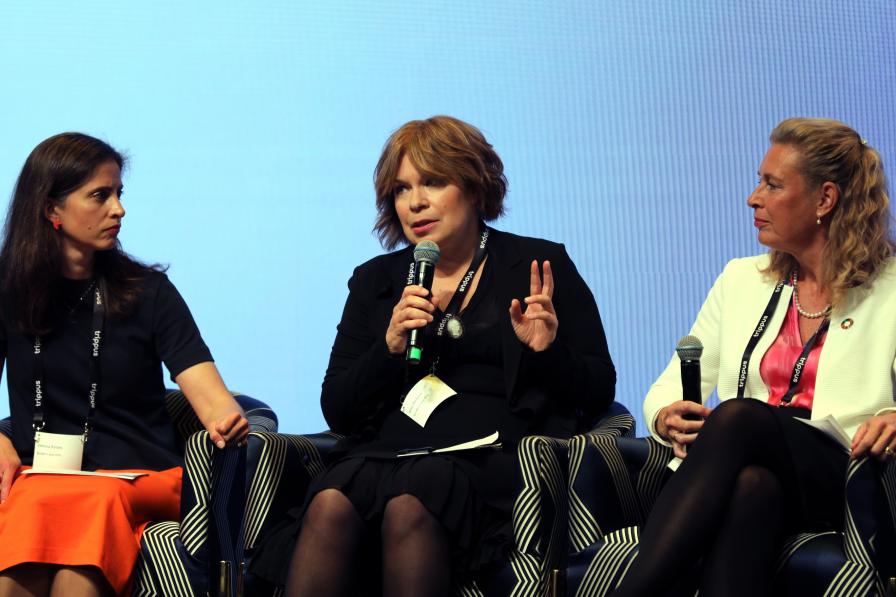
From L-R: Vanessa Butani, Vice President, Group Sustainability, Electrolux; Nina Ekelund, Executive Director, Haga Initiative; and Annika Ramsköld, Head of Sustainability, Vattenfall
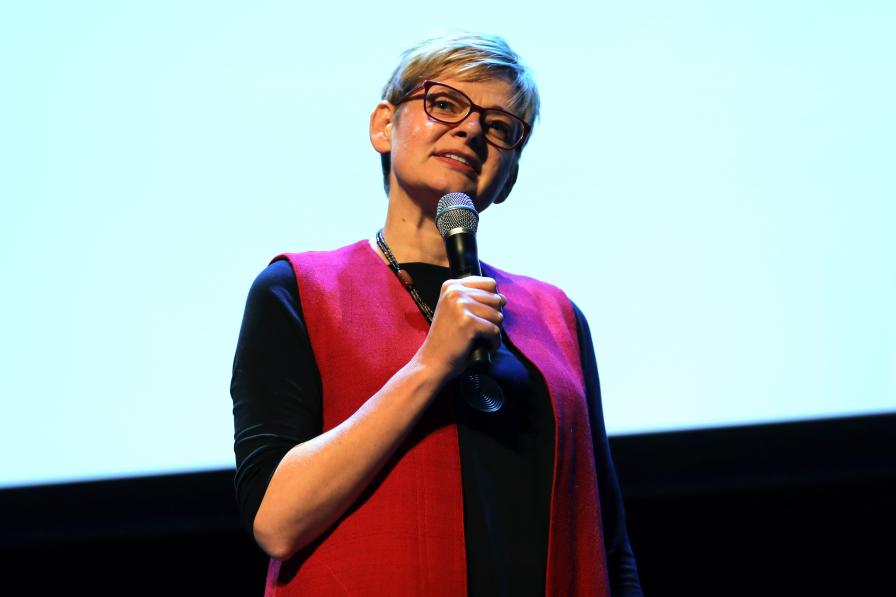
Maria Ivanova, Director, Center for Governance and Sustainability, University of Massachusetts Boston
